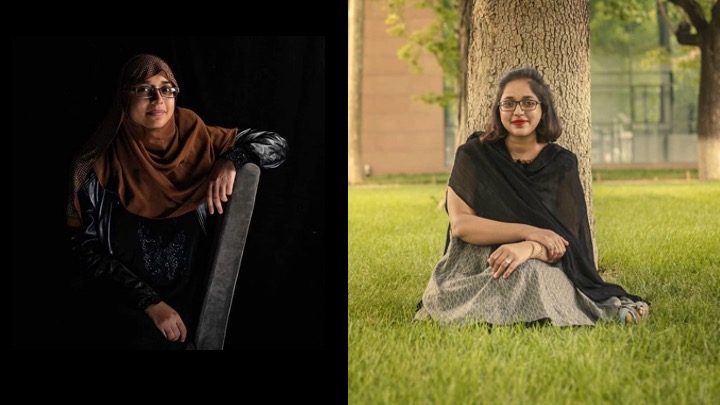
It is hard to tell the story of my transformation from a practising Muslim to a freethinker. It did not happen in a day or two. It took almost a decade.
I was born and raised in a moderately religious family in Pakistan. I was taught religion even before I could understand words. I was Muslim. I knew the greatest of all was Allah. I was supposed to worship Allah and do good deeds to make Him happy. When I turned seven, my parents told me that I had to pray five times a day daily. To begin with, I carried out some of my prayers and missed others, but within a few years, I was doing them regularly. I wore loose clothing. I fasted during Ramadan, and refrained from acts which are considered sins in Islam.
While doing this, I was studying journalism at a university in Lahore. I would go there in an abaya. I never stepped into the radio section of the department at that time because I thought it was wrong for men to listen to the voice of a woman from outside their family.
I had no plans to become a journalist. I was just studying it after one of my uncles suggested to my father that he put me in that field. Before my graduation I had decided to apply for a doctorate at a foreign university. I started applying for scholarships quietly. I was preparing the required documents, filling out long forms, and waiting for the results. I knew there would be a lot of resistance: in my family, as in most families in Pakistan, unmarried girls do not take decisions about their lives, especially ones like going abroad to study. I thought that once I had got the scholarship and admission letter, I would then speak to my family.
Before I could speak to them, however, they spoke to me. They had received a marriage proposal from our extended family. The man was a mufti, an Islamic cleric. My parents thought it would be the best proposal for me since I was religious: I used to pray regularly and cover myself before going out, and was not very social. I, on the other hand, had bigger dreams: to get a PhD and to teach at a university.
When my father informed me that my family had accepted a marriage proposal on my behalf, my world was shaken. I thought of the implications of being tied to the household of an Islamic religious scholar. It would undoubtedly mean a strict, orthodox life with rigid expectations as to how I dressed, spoke, and conducted myself in public.
As a 23-year-old, I wavered between the excitement of finally getting married and anxiety over what I would have to sacrifice. My dreams of graduate study abroad and a writing career seemed uncertain. I asked my family to ask them if they would agree to my getting a PhD and having a career after the marriage. If they said yes, I decided I would be happy to marry the mufti, otherwise I would decline his proposal. The answer was a clear no: they would not let me pursue my career after getting married. But this was because my family thought I would give up on my dream of graduate study and that it did not mean much to me.
According to a report of the Asian Development Bank, although women in Pakistan are increasingly pursuing higher education, only 25 per cent of those who do complete higher education end up working outside the home. They are married off as soon as they get their degrees, or sometimes even before that, but with the groom’s family promising that the bride will complete her education after the marriage. Many times, however, these promises are not fulfilled.
Despite their having rejected my conditions for marriage, and although I was reluctant, both families agreed to move forward with the engagement. It lasted for two years. In those two years, I was at least allowed to go to China to do a Master’s in International Journalism and Communication at a university there.
My time in China expanded my perspectives in the ways I had not expected. I went there to get a Master’s degree, but it proved a vital step along a path that I had never even thought to follow. As an international student far from home, I gained experiences that I had never had before. I attended lectures in which we would discuss values that were different from those in my home country. I had classmates from all over the world. We would gather in our spare time and talk about different subjects. Those conversations helped to open my mind a little. Over time, I realised that, in China, I was living a life free from the oppressive cultural and religious expectations of my homeland. I felt both safe and free.
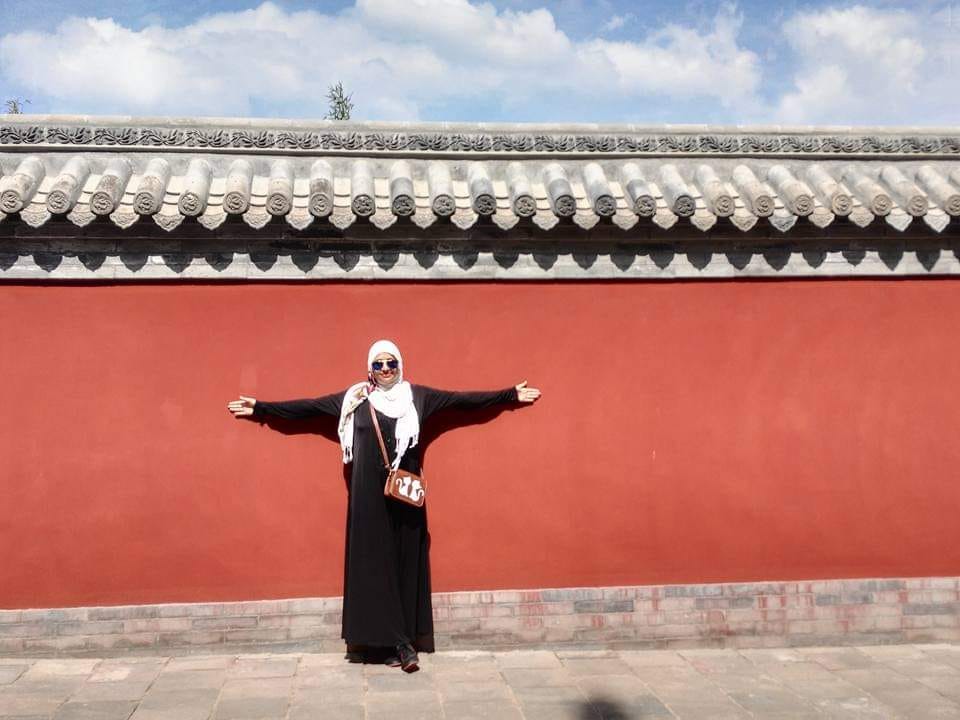
Meanwhile, I was also talking to my fiancé. Our phone calls, in which he would dictate strict rules on my conduct and the people with whom I could associate, left me deflated. I confided in fellow Muslim women students who faced similar restrictions and, as it were, remote control from their families back in their home countries. We would talk about the cultures in which we grew up and then compare them with the culture we were experiencing in China. It was totally different. None of us wanted to go back to our Muslim majority countries.
This forced me to think seriously about why I and my fellow Muslim women students did not want to go back home. The answer was simple, but it took me a decade to work it out. The reason we did not want to go back home was the religion that was forced on us. We wanted to practise it in our own ways as independent women. We did not want guardians. We wanted our own identity.
It was the first time that I had started to think about the contradictions between the progressive values I yearned for and the religious dictates that I had followed unquestioningly when younger. I started to write blogs chronicling my evolving thoughts about women and their rights. Although I was mostly criticising the oppression of the traditional Pakistani culture which I had been raised in, I realised that the culture I was questioning was founded on a religious basis. The more I became concerned about patriarchy and autocracy, the more I began to doubt what I had previously accepted as infallible religious truth.
I then started to engage with progressive thinkers and academics. I found several YouTube channels where freethinkers were answering the questions I had been turning over in my mind for years. I started listening to their videos. I bought their recommended books. These also helped to clarify my thoughts.
The fact that I was writing publicly about how I was questioning the cultural structure in which women in Pakistan were held became a serious problem for my fiancé. Both families decided to call off the engagement. I am grateful to that relationship for making me what I am today. It helped me to turn towards the liberation of reason and made me an individual who believes in progressive values, including those which support a liberal secular society and democratic government, and which allow free speech and other freedoms to everyone without any discrimination.
The change did not happen in a day, but gradually. Instead of focusing on praying and fasting, I started instead to think about helping people in whatever way I could. I was a journalist; I started drawing attention to social issues in Pakistan, particularly those related to women, ethics and religious minority groups. As I and other journalists brought these issues to the attention of institutions which could resolve them, I would feel a sense of happiness and achievement.
As Simon Cottee discusses in his book The Apostates: When Muslims Leave Islam, while men question the teachings of Islam after not finding answers to their questions about the universe, women question it when they start to become uncomfortably aware of how they are being controlled and deprived of their rights. I felt the same, though for most of my life I considered myself a Muslim, a liberal one.
As I went further into questions of who I was and why I existed, I became less convinced of the existence of absolute truths about Islam, though more confident in my own moral compass. My idea of God grew broader than the way He was depicted in the orthodox scriptures. I felt closer to universal moral truths rather than narrow commands. This questioning process led me to realise the significance of the humanity that we all share.
I started to report on religious extremism and human rights violations, specifically those happening to women. It brought me the label of ‘bad woman’ in Pakistan. However, I realised that there were some people in my audience that appreciated my work. This appreciation gave me the courage to move forward with my journalistic career. This sense of support is the only thing that pushes the small minority of progressives in Pakistan to keep doing their work.
Now, back in Lahore, the azaan still echoes around me five times a day from multiple mosques at the same time. I think about the misuse of loudspeakers by these mosques. The local law permits them to use their loudspeakers for Friday sermons and call for prayers only. However, there are seven mosques in my neighbourhood. Some mosques use their loudspeakers for daily sermons and recitation. I cannot question this practice as a citizen of the country. I cannot even write about it in the local media as a journalist. I would put myself in danger if I did so.
In April 2017, the Indian singer Sonu Nigam described in a series of tweets how he was constantly ‘woken up by Azaan’ and questioned when this ‘forced religiousness’ would end in India. His tweets caused him lot of trouble. According to the Times of India, he has been placed on the hit list of the terrorist organization Lashkar-E-Taiba.
My transformation was neither planned nor easy. It is very difficult for most women in Pakistan and much of the Muslim world to freely question or leave religion as I have. Those who dissent often face threats or exclusion. The small communities of progressives and freethinkers that exist remain low-profile to protect themselves.
While this ongoing exploration at times feels lonely, it has connected me to liberal, freethinking communities abroad and at home. I feel more confident in myself, liberated, and connected with progressive values that are welcomed by people around the world. It gives me peace – more than I have ever received from the religion in which I was enlisted a few minutes after my birth.



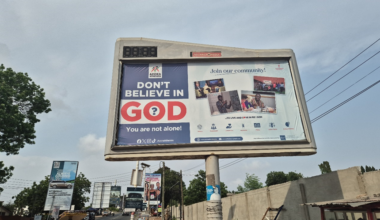
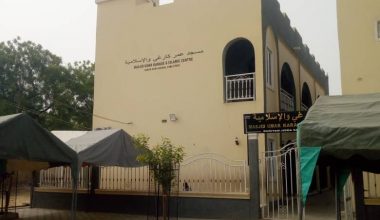
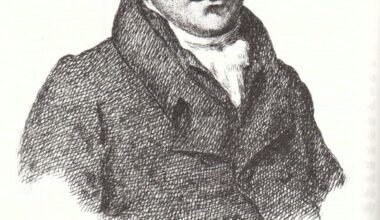
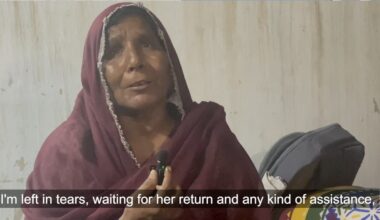
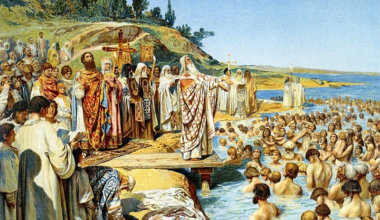
2 comments
What a Piece Tehreem.
Now you see the importance of exploring the world outside your immediate environement.
I am amazed when you kept saying “Marry Off…” like the ladies dont have option on what/when to do with their life. but i think it is also obtainable in the northern part of my country. Millions of ladies expeirence similar tale & many are not privedged to know the difference or even air their burdens (maybe out of ignorance, fear for security, Ostratization by the community/family etc) and we see many promising ladies end their dreams only to be a cleric wife & be making babies. they are happy possibly because they dont know what else is out their.
Bit i feel everyone should be allowed to experienced a balanced view then chose what they really wana adopt & do with their individual lives (so far as it wouldnt cause real harm on another)
Love that you mentioned this journey is openeing your mind bigger to Gods’ place in all these. As a freethinker i hope you dont rule that one out
THERE IS GOD
Our path to discoverimg him might be different .bowever it will be foolish for any of us to deny his existence & influence in the affairs of men.
I wish you a good ride
Keep being the voice as God leads you.
The best is yet to come.
I’m forever grateful that though my parents were nominally religious and followed a traditional path of their generations, they did nothing but encourage us to be free thinkers and follow our own routes through life.
Freedom of the mind is the start of all freedoms.
I wish you all the best and thanks for this article, you are an inspiration.
Your email address will not be published. Comments are subject to our Community Guidelines. Required fields are marked *
Donate